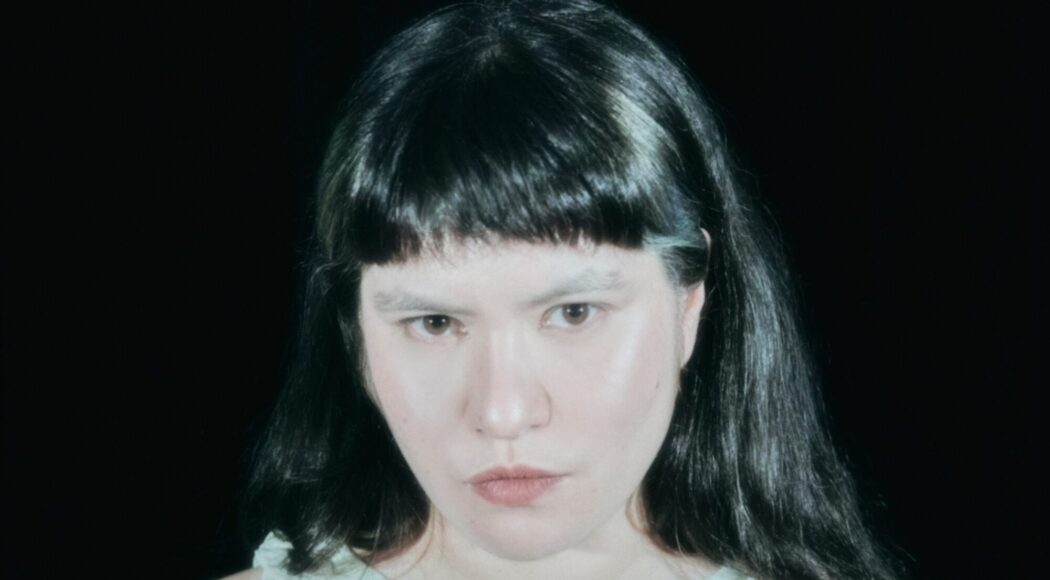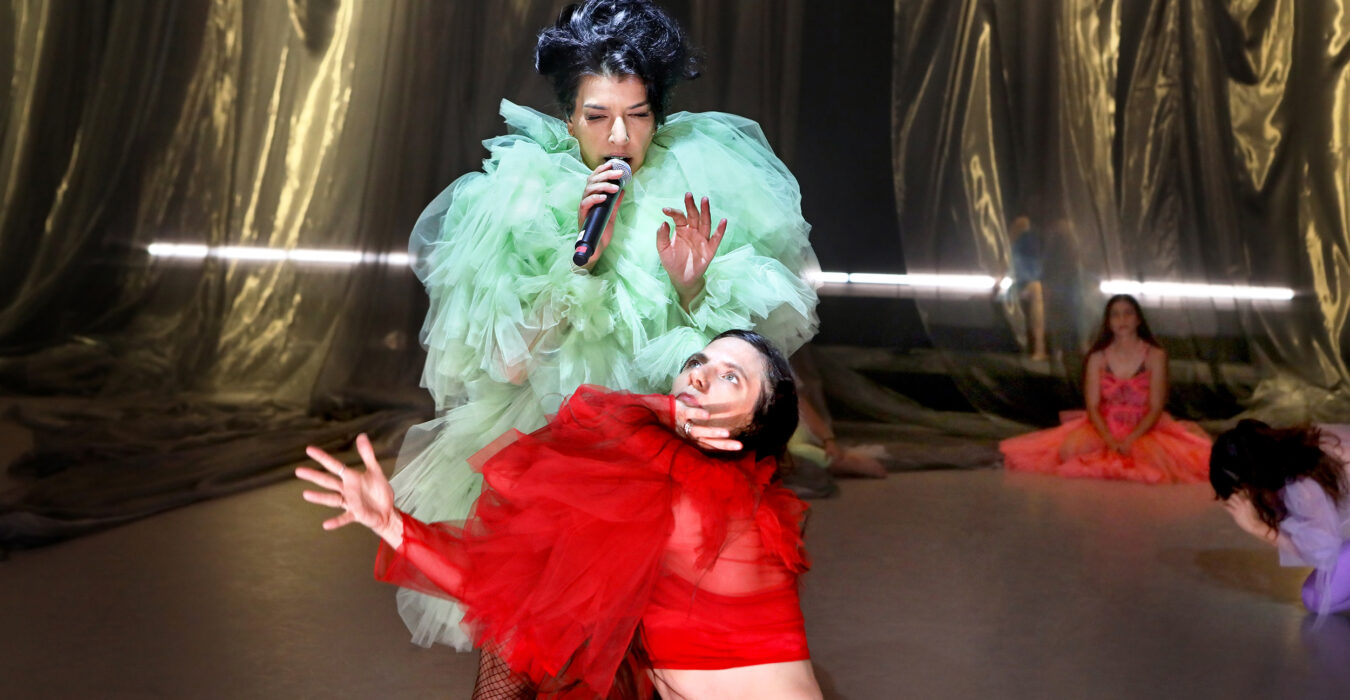Hana Umeda
November - December 2024
The performer and choreographer Hana Umeda is researching her new project “Revival” together with the dancer and choreographer Masha Shalagina and the performer and dancer Andrii Romanenko.
If a performance were a being – what kind of body would it have? How would it move, feel or think? The artists want to use their encounter to create a new organism that can be constructed from their bodies, the space, the sound and everything else they bring into their practice. The central idea of the research is collectivity, experimenting with the establishment of a unity that can go beyond their human bodies.
As part of “ Tanzformen – Empowering Bodies”, several artists are part of a residency program at HELLERAU. During a joint Open Studio on 05.12., artists Ira Melkonyan and Hana Umeda will provide insights into their respective research.
Hana Umeda’s movement practice is based on 18 years of classical Japanese Jiutamai dance, in which she reached a professional level in 2020, was symbolically accepted into the Hanasaki-ryu family of Jiutamai and received a new name: Sada Hanasaki.
The Poland-based performer and choreographer of Japanese and Jewish descent works in documentary and autobiographical formats to comment on socio-political issues by bringing in her own experiences. She bases her creative process on theoretical research, a practice she developed during her doctoral studies (not yet completed) at the Institute of Polish Culture at the University of Warsaw and which she is currently continuing as part of the MA SoDA program at HZT Berlin, where she can further develop a research-based performance practice.
Between 2021 and 2023 she was a member of the collective “Centrum w Ruchu” [Center on the Move]. In 2018 she was a scholarship holder of the “Młoda Polska” programme of the National Centre for Culture, thanks to which she made her debut as a director with the performance “SadaYakko” in KOMUNA WARSZAWA, in which she commented on the orientalizing gaze. In 2022, she won the first edition of the New Situations Scene Artistic Residency at the Współczesny Theater in Szczecin, where she created “Faithless”, a stage ritual of apostasy. Nominated in the IDFA DocLab competition for Immersive NonFiction, IDFA DocLab: Phenomenal Friction, Amsterdam, 2023 for the VR experience “Close”, in which she began her research on the intergenerational traces of sexual violence. She continued this research in “Rapeflower”, which premiered at Komuna Warszawa in 2024.
Masha Shalagina is a dancer and choreographer from Russia, currently based in Berlin. She explores body-based practices and dance as a way to create alternative channels of communication that develop sensitivity to aspects such as sensuality, opacity of the other, intuition and empathy.In 2021, she left Russia due to the developing political pressure in the country, especially the persecution of artists and activists. Since then, she has focused on ways to combine artistic and activist approaches in her work and raise awareness of the Russian government’s crimes in the European context. In 2022, she directed an anti-war music video in collaboration with the Finnish music group CRUX (Bjorn Blomqvist); co-authored an installation for the Tbilisi Architecture Biennale on the topic of living conditions for Tbilisi citizens in residential areas; developed a hybrid performance in collaboration with Ukrainian artist Andrii Romanenko responding to the Russian invasion of Ukraine; participated in the restaging of “In C” by Sasha Waltz with an inclusive dance group (by ‘InForm’; Tbilisi, Georgia). In 2023 she received a DanceWEB grant and began developing a series of projects on body memory and gaze politics as part of the ImpulsTanz festival. In spring 2024, she co-curated the festival program “Play!Zu Gast”, in the framework of which she made a film together with refugee children from Ukraine, which was presented at the PLAY!Berlin Festival at Uferstudios (Berlin, Germany).
Andrii Romanenko is a dance and performance artist from Yalta in Ukraine. He began his dance training in 2012 as a b-boy and hip-hop dancer. After the occupation of Crimea by Russia in 2014, he moved to Saint Petersburg, where he graduated from Herzen University (2016-2020) with a bachelor’s degree in choreographic art. After completing his studies, he moved back to Kiev in Ukraine and later to Spain for further studies. He was then in exile in Europe and was unable to return to his home country. In spring 2022, Andrii Romanenko created the solo piece “Come Out of the Trench”, in which he reflected on distance, exile and the impossibility of being physically present in his homeland. At the same time, in 2022, he worked with Masha Shalagina on a simultaneous performance entitled “When All the Rules Are Set by Assholes”. This work was performed on the same evening in Pamplona (Spain) and Yerevan (Armenia) in front of two different audiences. The two artists were connected via Zoom and tried to dance together from a distance and reflect on their shared post-Soviet past, present and future. In 2023, Andrii Romanenko was accepted into the MA SODA program at the Berlin University of the Arts and developed a work entitled “Cold War: Friendship” together with his friends and colleagues Julius Gilberd, Whitney Casal and Polina Tyabut as part of the “flausen+” scholarship at Theaterlabor Bielefeld. In 2024, Andrii Romanenko curated a three-month festival in collaboration with Masha Shalagina and the non-profit organization “PLAY! Berlin”, curated a three-month cinema lab for Ukrainian children in social housing in Berlin.



